- Home
- C. R. Daems
Tasmanian SFG: Welcome to Hell Page 15
Tasmanian SFG: Welcome to Hell Read online
Page 15
“I don’t think you will find any of us bashful or timid, Luan,” Pete said, smiling.
* * *
I had just entered our recreation area when a stocky man with a craggy face I judged to be in his late thirties waved at me. “Jolie, I’m Carl Schmitt,” he said. It was the morning of our first day aboard the transport ship to Libian. The trip was scheduled to take four days. “I heard you conducted a special training class for women on how to qualify for the Tasmanians. Isn’t that cheating and won’t it lower our standards?”
“Good morning, Carl. It would if there were any secrets to give away,” I said. “It seems to me qualifying to be a Tasmanian is easy if you can focus on the task you were given after days without sleep and the inside of your skull feels like there is an erupting volcano, if you can keep going after days of nonstop physical tasks when the hot lava running through your body has consumed all the oxygen your muscles need to function, and if you can add two plus two after your body and mind have shut down because you’re too stupid to quit.”
That elicited hoots, clapping, and laughing from everyone within hearing. I bowed.
“I hear you taught them not to fear,” Carl said, determined to make some point or other.
“You hear wrong, Carl. You can’t teach someone not to fear and I wouldn’t want to since fear is a necessary survival skill,” I said, enjoying the exchange, and remembering days spent in similar discussions with my father. “I worked with them to control their fear.”
“True Tasmanians don’t fear anything,” Carl pressed.
“Poor Chief Simon,” I said, hanging my head in mock sadness. “I really liked him.”
“What are you talking about?” Carl shouted. Looking around, I saw I had everyone’s attention, some serious, some amused, but everyone interested.
“He will have to be replaced,” I said, shaking my head.
“Why?”
“Because he has let false Tasmanians qualify as Tasmanians.”
“Who?”
“I can’t tell you, Carl. That would be breaking a sacred trust…” I began but had to stop as the snickers and snorts were becoming good-natured laughs.
“Carl, you are arguing with a woman. She’s not embarrassed to say she’s capable of fear. We’re men and taught to pretend we’re never afraid of anything,” Howard said. “The true Tasmanian is one who can control his or her fear and be counted on when the shit hits the fan. So Chief Simon is safe. Luan is one of the Four Sentinels.”
* * *
Again, the discussion turned to Gong Luan, and I spent the remaining days discussing balance and had matches where examples were examined.
“Luan,” Howard said as I and everyone else was preparing to depart the transport. “We are going to get you a fourth specialty—entertainer. These trips to and from used to be boring to the point of madness. With you aboard, no one would mind a few extra days.”
CHAPTER TWENTY-FOUR
Planet Libian: The Zinwe Uprising
The weather was steamy as we departed the transport. Radcliff City looked huge, spread out over the rolling hills as far as the eye could see, although I knew from our briefing its total population was only several hundred thousand. The reason was obvious when I examined the scene more carefully. Very few structures were over two or three stories high, so the population was spread over a larger area and in a sense easier to raid. The town was relatively self-sufficient, having its own farms and cattle, as well as a lumber and textile mills. Machinery, vehicles, weapons, and other more durable goods had to be ordered from the larger cities located further inland which had been settled hundreds of years ago. The town’s main source of income was from cattle and food products, which were also popular targets of the raiders. Ironically, the raiders seldom killed anyone who wasn’t interfering with a raid. However, those entering the jungle in pursuit or even to look rarely returned.
The jungle people, the Zinwe, had modern weapons acquired from the many groups who tried to chase the raiding parties into the jungle or armed militia who entered the jungle with the intention of annihilating the Zinwe. The jungle was dense with vegetation and the visibility poor, giving modern weapons little advantage. The Zinwe preferred bow and arrows and knives. They were silent killers who roamed the jungle like ghosts and the reason the military didn’t stand a chance no matter the numbers. As the army chased the Zinwe, they were forced further and further into the jungle and attrition slowly consumed the army. Food and ammunition dwindled, and men died silently in ones and twos until the army was no more. The Zinwe killed most, but venomous snakes, large cats, alligators, and other poisonous inhabitants, along with the treacherous terrain, contributed to their inevitable demise.
That was the reason the Tasmanians would lead the army into the jungle. In theory the army would be available for support and able to maintain a supply line. It didn’t sound logical to me—too simple and it assumed the Zinwe were stupid.
Howard had spent several hours with General Wentworth discussing our combined forces before returning to the Tasmanians’ temporary encampment and called for a meeting of his staff.
“The strategy is simple. The Tasmanians lead the army into the jungle, engage the Zinwe, kick ass, and the army will claim victory,” he said with a serious expression and received a few smiling nods and snorts—Tasmanian humor. “We will lead, Rangers will be following us for support, and the army grunts will follow, maintaining a supply chain for needed supplies and additional manpower support if necessary. We will move in a line, from left to right. Clifton, Lacy, Finley. Sadler, your group will follow behind Lacy, ready to support as necessary.” He looked to me. “Luan, where do you plan to be?”
“I’ll start behind Finley,” I said, not sure what was expected of me or how I was going to help.
“To watch?” His head gave the slightest shake. “If I gave a seven-man unit with a freedom of movement order, any other Tasmanian would want to lead. All right, let’s go meet the Zinwe.”
It took an hour for the various groups to get organized into our order of battle. When General Wentworth signaled ready, Howard nodded and the Tasmanians began our normal run toward the jungle, which looked like a wall of green.
Up to that point, the land had been cleared over the years for farms which slowly grew into towns and then cities as they slowly ate their way into the jungle. But at some point, around fifty years ago, the Zinwe had revolted against the encroachment into their land. At first the settlers had killed ten-to-one using modern weapons and equipment. Slowly the tide turned as the Zinwe learned their ways, captured weapons they learned to use, and consolidated the small tribes into what was today the Zinwe.
Today, the Zinwe controlled the jungle. Deaths on expeditions into the jungle were running twenty-to-one in the Zinwe’s favor. In the beginning, the jungle tribes would attack in force and lost badly. Today, it was guerrilla warfare. They followed the invaders killing one and two at a time, hindering the supply lines, and setting traps. Soon the invading army suffered a thousand cuts as it attempted to chase the Zinwe through the dense vegetation and mountainous terrain. Even the settlers’ attempt to clear the edges of the jungle was thwarted by raids and sabotage. In desperation, Libian had sought the USP’s help.
Up to the edge of the jungle, we followed a dirt road that passed clusters of houses and acers of farms and grazing land, which we were told required a standing militia to keep safe from the Zinwe.
We stopped and organized into our order of battle while we waited for the Rangers and the army. I felt sorry for the army grunts. As I watched the supplies were being unloaded from the trucks, I realized from this point on hundreds of pounds of materials necessary to support the troops would have to be carried ever further as we advanced into the jungle.
On some signal from the commanding officer, Howard pointed into the jungle and the Tasmanians began moving. At first the ground cover was sparse and the sun provided sufficient light to see for twenty meters or more. But as we adva
nced, large trees blocked the sunlight and the jungle turned into a murky twilight and the ground cover became thicker, making straight line movement impossible. After an hour, I had a choice to make as it became harder to see Finley’s unit, who was advancing at a steady walking pace causing the separation between the Tasmanians and the Rangers to widen slightly. Although I couldn’t see the army, I surmised it wouldn’t be long before the gap between the Rangers and army would be even larger.
Shots interrupted my musing.
“They are shooting from elevated ground about a hundred meters away,” Lacy said a few seconds afterward.
“Don’t get ahead of the Clifton and Finley,” Howard said.
I was glad I wasn’t in charge, in fact, I wasn’t happy I had a unit to direct. But if I were in charge, I would have told the leading units to slow down. My unit was just slightly ahead of the Rangers and the gap between them and the Tasmanians was increasing.
“Should we move up to support Finley’s unit?” Smitty asked over our private line. I remained silent as I contemplated what I would do if I were alone as I worked on eliminating my distractions: anxiety over being in charge, lack of knowledge about what was happening, an unknown enemy.
“Unit, take cover,” I said, deciding the Zinwe had been at war for fifty years with various militia and weren’t stupid or they would have been eradicated by now. “Stealth advance away from the Rangers.” To my surprise no one questioned me. These were experienced veterans and the order was not only strange but from a woman with very little experience.
Over the next ten minutes, sporadic rifle fire from the Zinwe increased. My unit had dropped back from the lead Rangers some twenty meters and away by another fifteen. Then I heard a click in my earbud, then another, as individuals sighted movement or individuals. Less than a minute later, I saw movement only ten meters in front of me—ten small brown men, naked except for groin cloths and wearing cloaks the equivalent of ghillie suits except they were smaller and less elaborate but no less effective. I quickly typed on my TCom to Howard:
LUAN: Howard, Notify Rangers. Zinwe on east. Probably on west. Preparing to attack.
Then to my unit:
LUAN: Wait to verify numbers.
I was concerned we could get caught between two groups if we acted too soon. When a minute passed and I saw no more, I sent:
LUAN: Close and kill on contact.
I began slowly moving in the direct of the Zinwe I had seen, trusting I would have my brother’s support by the time I found them. Several minutes later, moving carefully close to the ground, I saw one then two. They had apparently spread out and were selecting individual targets, not for an attack but to snipe. I saw no guns, just bows, so I drew two throwing knives, raised up on one knee, and threw at the one furthest from me. It struck him in the neck. He made a soft grunt of surprised pain, probably trying not to expose his friends to their position.
But his friend, the one closest to me, heard the contact or saw him jerk, saw the knife and blood, and spun, looking for the enemy. He saw me preparing to throw and jumped to his feet surprisingly fast. Quick enough for my knife to strike him in the chest rather than the eye. He had dropped the bow as the knife struck, hesitated for a moment, then drew a long knife and charged me as quiet as a ghost. He was in the air and flying toward me with his knife arm raised high prepared for a downward slash at my head. With nowhere to move to avoid him, I lunged at him with my shoulder aimed chest high when he reached me. As I lunged to meet him, I folded my knife along my forearm.
The contact was like hitting a stone wall. Neither of us had a lot of mass but combined with our forward motion the contact made for a teeth-rattling collision. With my body so close to him his knife passed behind me, but I had my knife up to block anyway and met his arm at the forearm. The force of the impact as his arm slashed downward jarred his knife loose and my knife cut into the bone, leaving the forearm attached only by a small strip of skin. I immediately drove my knife downward through ribs and under his breastplate into his heart. He hung dead suspended on my knife as two more men appeared out of the brush.
The jungle looked to have come to life. The two behind me had short bows notched with short arrows pointing directly at my exposed side and back. I spun my dead Zinwe toward them as two arrows flew in my direction. My new dead friend took both in the back. As the two Zinwe continuing running toward me they notched another arrow. I threw myself backward while hanging onto the dead man, landing with him on top of me as I fell. He now had four arrows in his back. The two Zinwe were only several meters away with knifes drawn and smiles like they had found a tasty snack. I drew my Jericho and put two bullets in one Zinwe’s chest. The impact stopped his forward motion like he had run into an invisible chest-high bar. His legs flew out from under him and he dropped into a sitting position.
By now the other attacker had launched himself into the air towards me, knife in hand. I shot him three times in midair. He landed on top of his dead comrade and me, knocking the wind out of me. He didn’t move so I thought him dead but reached over and shot him in the head anyway. I hoped there weren’t any more lurking in the thick underbrush, since I was tired and couldn’t move with the weight of the two men on me.
“You okay, Luan?” I heard Smitty ask. I would recognize his voice anywhere after the interrogation session.
“What’s our status?” I asked. I didn’t hear any shooting but there had been a lot of thrashing noises.
“Art and Cedric were wounded. Isaac is working on them. Howard has halted the Tasmanian advance. The east side of the Rangers’ line got hit and I heard they lost three and have several wounded. Oh, and our unit leader is on her ass.” Smitty smiled as he reached down and pulled one then the other man off me. “Were you stabbed?” he asked with genuine concern.
“No, he and I,” I pointed to the man with the all but severed arm, “were playing with knives while kissing close.”
“Holy shit. Is that from blocking with your knife folded along your forearm?” he asked, looking wide-eyed at the man’s arm dangling loose. I nodded. He reached down, grabbed my extended hand, and yanked me upright. My uniform was soaked with blood and stank.
“How did you know?” Todd said as he and Van appeared out of the brush.
“You look like the walking dead,” Van said, frowning at my blood-soaked fatigues.
Before I could answer, Howard came toward us with Major Lloyd, the ranking Ranger.
“What’s your status, Luan?” he asked.
“Two wounded. I haven’t had a chance to assemble my team, but I’m told the injuries are not disabling. Both were from arrows,” I said.
“What happened?” he asked.
“My team and I were behind Finley’s group and since nothing was happening, I decided to watch the army’s flank. With night coming on, it seems an ideal time for sniping. A short time later, we ran into a group of Zinwe. That’s when I notified you they might also be attacking the other side.”
“Just four?” Lloyd asked. He couldn’t see more than the immediate area because of the thick foliage. “We had thirty or more on the east side. We killed three before they retreated.” As he spoke the rest of my team began wandering in.
“Twenty. Those four are Luan’s kills,” Smitty said.
“Luan, I just came from the medics,” Isaac said as he jogged in. “They confirmed my assessment. Art and Cedric’s wounds aren’t too serious and they should be functional after a night’s rest.”
“They can rest until we return.” I looked at my TCom. It was going on twenty-two hundred hours. “Let’s assemble at two hundred hours at Finley’s group.”
“Where are you going?” Howard asked.
I shrugged. “I’d just like to look around.”
“That’s stupid,” Lloyd said.
I was tempted to say that maybe we could find the thirty Zinwe that got away but decided I didn’t want to cause any inter-army hostility. The major sounded like a jerk, but I thought the majority of
the Rangers were good people.
“I’m going to get something to eat. The Zinwe may not invite me to dine with them,” I said and began walking toward the Rangers’ camp hoping to find a place to rest if not food. Smitty and the others followed.
“Over here, Jolie,” a female voice shouted, and when I looked, I saw Staff Sergeant Knight. She waved me over to a group of six tents. “I heard it was you that sounded the warning. Unfortunately, Major Lloyd was slow to react.” She lowered her voice and leaned toward me. “He failed to qualify for the Tasmanians several years ago and has a bit of an attitude ever since. He dismissed the warning as nervous Tasmanians. Consequently, we were only partially ready when they attacked.” She shook her head. “I hear you were given a unit to lead and it was you who told Howard to warn us.”
I nodded. “We caught them preparing to attack your western flank. Hit and run, I think. Kill a few and disappear back into the jungle.”
“How did you make out?” Shirley asked hesitantly, looking at my blood-soaked uniform.
“Two wounded. I thought I’d check on them before we go back out.” I intentionally ignored the number we killed, not wanting it to appear like gloating or a competition. “Do you have anything to eat?”
“That tent has some food.” She pointed to the middle tent. “The two to the left have wounded and the two to the right have food.”
“Thanks, Shirley,” I said. I went to the food tent and found they had a hot cereal porridge which I collected and then wandered over to the first medical tent and found Art and Cedric.
“How are you doing?” I asked as I entered the tent.
“Every time I see you, Luan, you’re eating,” Art said, looking up at me.
“Got to maintain my figure,” I said, pushing my chest out, which wasn’t very impressive. I had been told all the exercise tends to retard female development.
“You’re going to have to eat a whole lot more, sister,” Cedric said, smiling. “We’re good, just a few cuts and a couple of arrow wounds. The doc said they didn’t hit anything critical.”

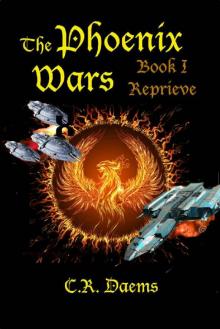 The Phoenix Wars: Book I, Reprieve
The Phoenix Wars: Book I, Reprieve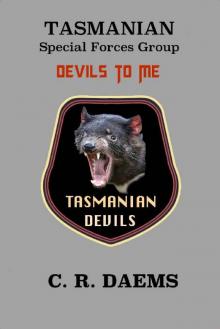 Tasmanian SFG, Book II: Devils to Me (Tasmanian series 2)
Tasmanian SFG, Book II: Devils to Me (Tasmanian series 2)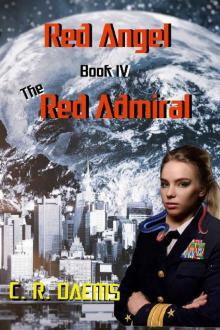 The Red Admiral
The Red Admiral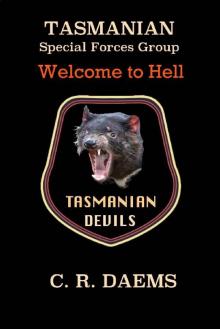 Tasmanian SFG: Welcome to Hell
Tasmanian SFG: Welcome to Hell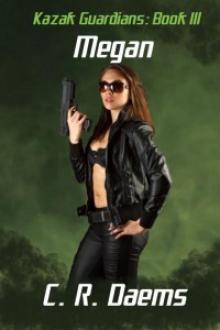 Megan
Megan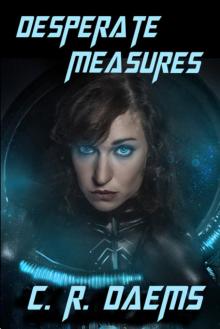 Desperate Measures: The Issog
Desperate Measures: The Issog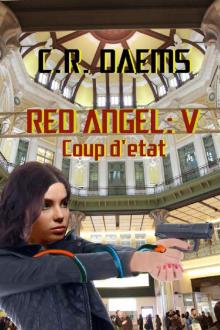 Red Angel: Coup d'etat (Red Angel Series Book 5)
Red Angel: Coup d'etat (Red Angel Series Book 5)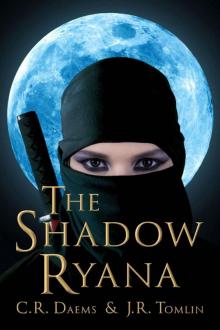 The Shadow Ryana (The Shadow Sisters Book 1)
The Shadow Ryana (The Shadow Sisters Book 1) Riss Series 5: The Riss Challenge
Riss Series 5: The Riss Challenge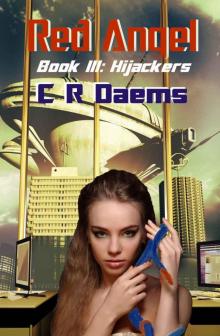 Red Angel: Book III: Hijackers
Red Angel: Book III: Hijackers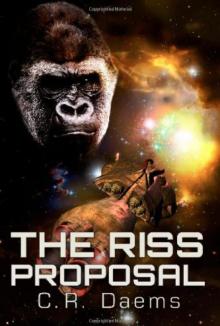 The Riss Proposal: Book II in the Riss Series (Volume 2)
The Riss Proposal: Book II in the Riss Series (Volume 2)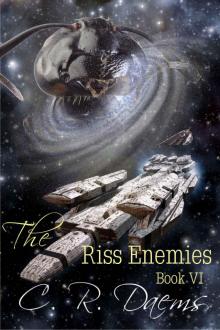 The Riss Enemies: Book VI (The Riss Series 6)
The Riss Enemies: Book VI (The Riss Series 6)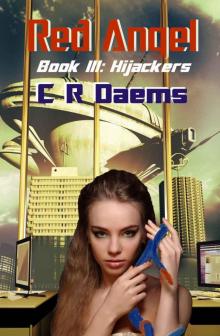 Hijackers
Hijackers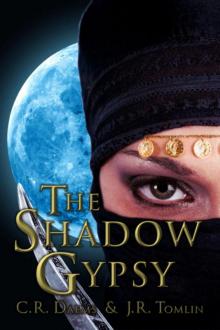 The Shadow Gypsy (The Shadow Sisters)
The Shadow Gypsy (The Shadow Sisters) The Seer Renee
The Seer Renee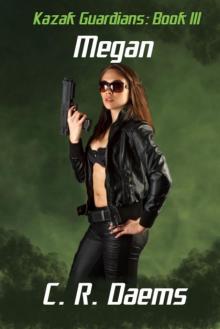 Kazak Guardians: Book III: Megan (Kazak Guardians Series 3)
Kazak Guardians: Book III: Megan (Kazak Guardians Series 3)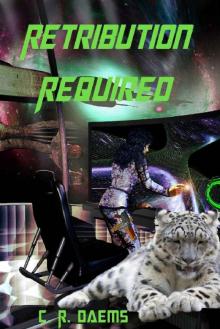 Retribution Required
Retribution Required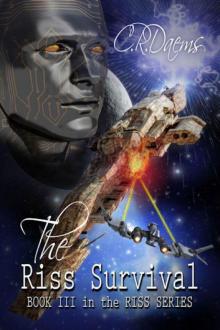 Riss Series 3: The Riss Survival
Riss Series 3: The Riss Survival The Riss Gamble
The Riss Gamble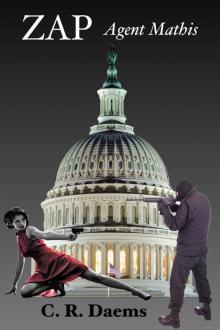 ZAP Agent Mathis
ZAP Agent Mathis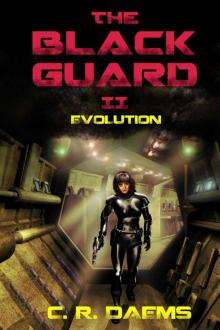 The Black Guard: Book II: Evolution (Black Guard Series 2)
The Black Guard: Book II: Evolution (Black Guard Series 2) Zara the Wolf
Zara the Wolf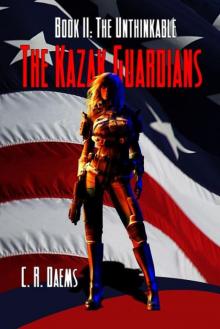 C.R. Daems - Kazak 2 - The Unthinkable
C.R. Daems - Kazak 2 - The Unthinkable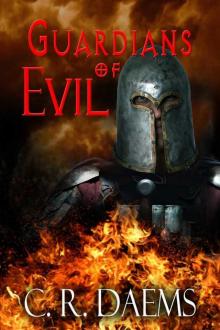 Guardians of Evil
Guardians of Evil Red Angel: Book II: Raiders (Red Angel Series 2)
Red Angel: Book II: Raiders (Red Angel Series 2)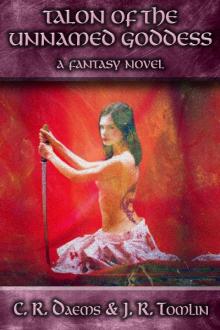 Talon of the Unnamed Goddess, a Fantasy Adventure
Talon of the Unnamed Goddess, a Fantasy Adventure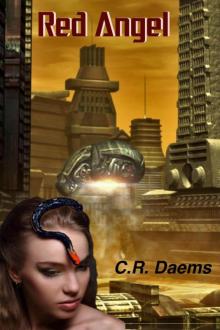 Red Angel
Red Angel Women of Power
Women of Power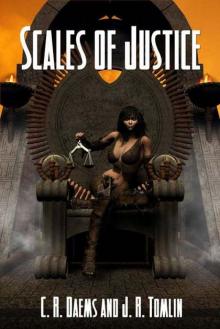 Scales Of Justice
Scales Of Justice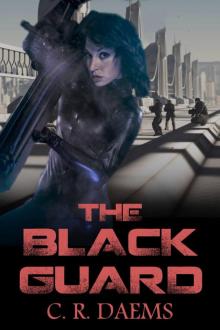 The Black Guard
The Black Guard